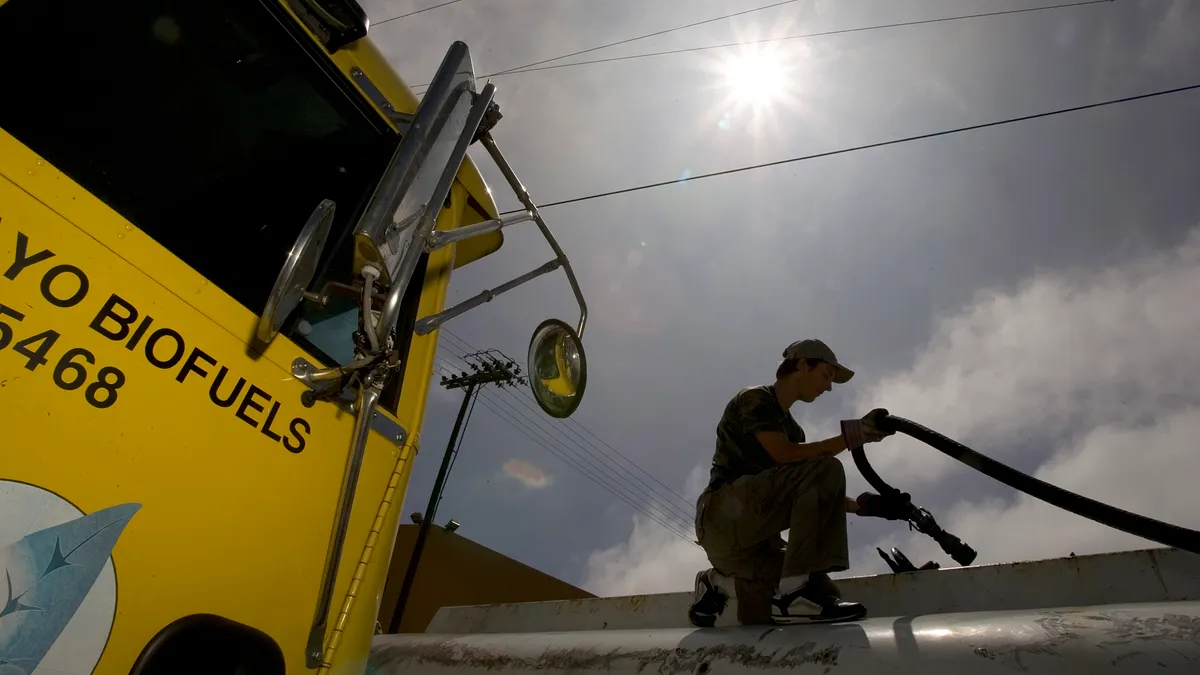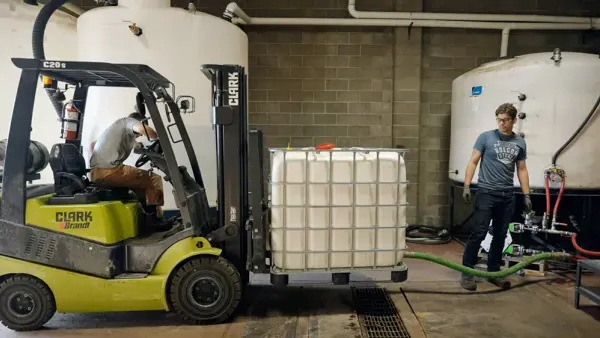Dive Brief:
- Oxylus Energy has raised $4.5 million in seed funding to back its technology that converts captured carbon dioxide into green methanol, an alternative fuel the climate tech company says can help slash emissions.
- The financing was led by Toyota Ventures, the venture capital arm of the Japanese car manufacturer, and Azolla Ventures, which invests in early-stage technology that helps mitigate climate change, according to a Tuesday release. Venture capital firms Earth Foundry and Connecticut Innovations also backed the seed round, Oxylus said.
- Oxylus said the new funding will help accelerate the development of its technology — which stems from a pilot program launched at Yale University last year — and fast-track its prototype testing and deployment.
Dive Insight:
The climate tech startup, formerly known as Carbon Loop, converts captured carbon dioxide into methanol by utilizing an electrolyzer — similar to those used for producing green hydrogen — which operates at a low temperature and low pressure. This method, according to Oxylus, can slash the price tag of green methanol — a low-carbon alternative fuel and commonly used chemical made using renewable energy.
Oxylus Chief Operating Officer and co-founder Harrison Meyer told ESG Dive over email this conversion process allows for companies from hard-to-abate sectors of aviation, shipping and petrochemicals to “operate at near normal conditions without costly infrastructure, storage, and engine upgrades associated with other alternative fuels such as green ammonia and green hydrogen.” This, he said, is due to the fact that methanol is liquid at room temperature and pressure and has a similar density to gasoline.
“Green methanol is a leading alternative fuel that can provide net-zero operations for the hard-to-abate sectors … that are currently responsible for ~11% of global GHG emissions,” Meyer wrote.
When launching its pilot for the electrolyzer technology last year, Oxylus said the green methanol can be utilized as a sustainable fuel for various needs such as shipping; be upgraded into sustainable aviation fuel and be used as a multipurpose feedstock for numerous chemicals and plastics.










